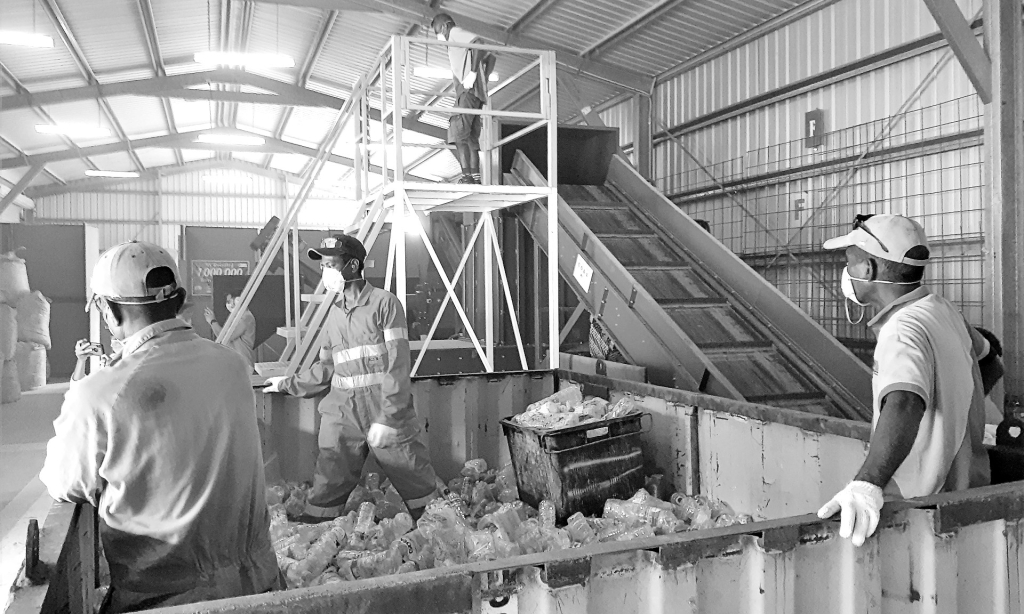

 Article
Article

The Global Alliance for Trade Facilitation promotes inclusive economic growth by giving developing and least developed countries better access to international trade. A neutral convener between government and business, it provides technical support and guidance, channeling global business knowledge. It is a leading public-private partnership.

Pursuing plastic neutrality, the Plastics Solution Alliance in Timor-Leste works to minimize the use and improper disposal of plastic and establish an inclusive recycling value chain. This will expand the small manufacturing base, diversify an oil-dependent economy and provide employment opportunities. It is a leading public-private partnership.
To improves sustainable, quality education in Guatemala, School the World joined forces with local governments and local community councils to build new infrastructure, improve teacher morale and create trusting relationships with local stakeholders. It is a leading public-private partnership.
We are in the midst of a crisis in child care. That’s not just for the parents or children directly and presently affected; if we don’t invest in quality care now, society will literally pay for it later. The matter touches issues of health, income, crime, IQ, costs to families and the public, and an individual’s ability to maintain employment.
Mining activities support the functioning of society but their benefits are usually seen far from the area of extraction. One public-private partnership leverages the value chain to strengthen the economic ecosystem in resource extraction communities, focusing on both responsible production and creating opportunities for women and young people.
How can underserved students in the Americas learn technical skills, work in teams and prepare for workforce demands? How can higher education institutions collaborate with governments, the private sector and NGOs to create training programs for students in STEM, public health, climate solutions, agriculture sciences and financial inclusion?
Zero access to electricity perpetuates the poverty cycle. In Zambia, one public-private partnership is a blueprint to providing power to rural communities and changing millions of lives. While developed economies rework a century-old, centralized grid infrastructure, developing economies can design electric grids with clean technologies in mind.
Areas in Mesoamerica see health equity gaps in newborn, infant and maternal health. The Inter-American Development Bank partnered wit ha number of partners to create the Salud Mesoamerica Initiative an innovative way to improve access to quality health care for 1.8 million women and children living among the poorest 20 percent of the population.
The Cambodia Rural Sanitation Development Impact Bond combines private and public capital with on-the-ground implementation expertise and market-based solutions to improve health and accelerate the Royal Government of Cambodia’s goal of universal sanitation. A finalist for the P3 Impact Award, it’s a public-private partnership changing the world.
With the world on the brink of pandemic, a business was asked to make masks. How should it balance an ethical imperative against the risks of entering a new market? And what direction should it take when the crisis receded? Public-private partnerships can combine the strengths of diverse entities, driving rich, broadly beneficial results.